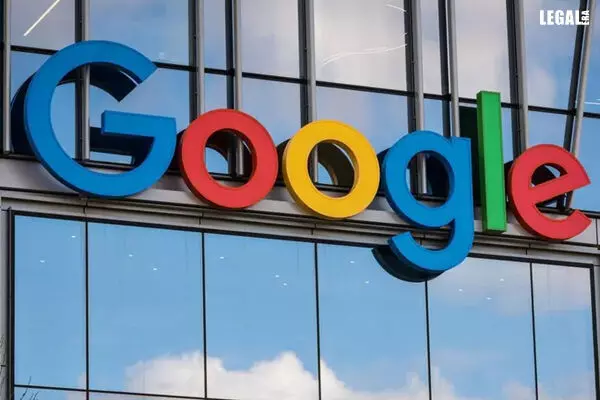- Home
- News
- Articles+
- Aerospace
- Artificial Intelligence
- Agriculture
- Alternate Dispute Resolution
- Arbitration & Mediation
- Banking and Finance
- Bankruptcy
- Book Review
- Bribery & Corruption
- Commercial Litigation
- Competition Law
- Conference Reports
- Consumer Products
- Contract
- Corporate Governance
- Corporate Law
- Covid-19
- Cryptocurrency
- Cybersecurity
- Data Protection
- Defence
- Digital Economy
- E-commerce
- Employment Law
- Energy and Natural Resources
- Entertainment and Sports Law
- Environmental Law
- Environmental, Social, and Governance
- Foreign Direct Investment
- Food and Beverage
- Gaming
- Health Care
- IBC Diaries
- In Focus
- Inclusion & Diversity
- Insurance Law
- Intellectual Property
- International Law
- IP & Tech Era
- Know the Law
- Labour Laws
- Law & Policy and Regulation
- Litigation
- Litigation Funding
- Manufacturing
- Mergers & Acquisitions
- NFTs
- Privacy
- Private Equity
- Project Finance
- Real Estate
- Risk and Compliance
- Student Corner
- Take On Board
- Tax
- Technology Media and Telecom
- Tributes
- Viewpoint
- Zoom In
- Law Firms
- In-House
- Rankings
- E-Magazine
- Legal Era TV
- Events
- Middle East
- Africa
- News
- Articles
- Aerospace
- Artificial Intelligence
- Agriculture
- Alternate Dispute Resolution
- Arbitration & Mediation
- Banking and Finance
- Bankruptcy
- Book Review
- Bribery & Corruption
- Commercial Litigation
- Competition Law
- Conference Reports
- Consumer Products
- Contract
- Corporate Governance
- Corporate Law
- Covid-19
- Cryptocurrency
- Cybersecurity
- Data Protection
- Defence
- Digital Economy
- E-commerce
- Employment Law
- Energy and Natural Resources
- Entertainment and Sports Law
- Environmental Law
- Environmental, Social, and Governance
- Foreign Direct Investment
- Food and Beverage
- Gaming
- Health Care
- IBC Diaries
- In Focus
- Inclusion & Diversity
- Insurance Law
- Intellectual Property
- International Law
- IP & Tech Era
- Know the Law
- Labour Laws
- Law & Policy and Regulation
- Litigation
- Litigation Funding
- Manufacturing
- Mergers & Acquisitions
- NFTs
- Privacy
- Private Equity
- Project Finance
- Real Estate
- Risk and Compliance
- Student Corner
- Take On Board
- Tax
- Technology Media and Telecom
- Tributes
- Viewpoint
- Zoom In
- Law Firms
- In-House
- Rankings
- E-Magazine
- Legal Era TV
- Events
- Middle East
- Africa
U.S. Court Ordered Google to Pay $15 Million For Infringing Audio Patents

U.S. Court Ordered Google to Pay $15 Million For Infringing Audio Patents
The U.S. based Delaware Federal Court has ordered Alphabet’s Google to pay patent holding company Personal Audio LLC $15.1 million for infringing two patents related to audio software.
According to Personal Audio, Google’s music app Google Play Music featured playlist downloading, navigation and editing features that violated its patent rights.
As a result of the jury's finding, the judge had the authority to increase the award up to three times than what was awarded for the original verdict as the Court found that Google had blatantly infringed the patents willfully.
Google spokesperson Jose Castaneda on behalf of the company, expressed his disappointment with the verdict and plans to appeal. He said the verdict concerns a ‘discontinued product’ and would not affect customers.
Whereas, the spokesperson for Personal Audio’s law firm Stradling Yocca Carlson & Rauth was pleased with the verdict.
Beaumont, Texas-based Personal Audio had requested $33.1 million in damages, in its Court filing.
The company first sued Google in 2015 over the patents in a lawsuit that was later moved from Texas to Delaware.
The Delaware verdict came less than a month after a San Francisco jury ordered Google to pay Sonos $32.5 million for patent infringement amid a sprawling intellectual property dispute between the companies over smart-speaker technology.



